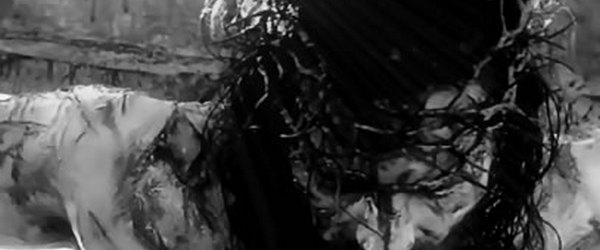This reflection is based on Luke 23:35-43 for the Solemnity of Christ the King.
It is telling that ours is a religion where kingship is depicted with the king not seated on a throne, not crowned with jewels, or surrounded by a powerful army. Instead we have our king bloodied and crucified, crowned with thorns, and hanging between two criminals.

We have grown accustomed to such an image of Christ the King–so much so that more often than not, we miss its point. It is directly opposed to all that the world tells us to be: To lord it over as many as possible by being rich, being honored, and being proud. It points to a very different kind of power: To be poor, to be humiliated, and to be humble.
It is hard to see how being poor, humiliated, and humble are signs of kingship. When “nice guys finish last” as often happens, when the wicked oppress the good as we so often see, we can’t help but complain to the Lord. We turn to Jesus, crying out: “Are you not the Christ? Save yourself and us!”
We sound like the first criminal. Note that there is no repentance in him; only an overriding concern to save the one person that matters to him–himself. What is striking is how his words make him sound almost exactly like the unthinking rabble and their rulers, who are responsible for Jesus’ crucifixion, all the while sneering at him: “He saved others, let him save himself if he is the chosen one, the Christ of God.”
Here we have the forerunners of the modern-day internet trolls, who discard rationality and act like bullies and rascals just because they think they can get away with it. They are no better than the first thief, nailed to their unthinking prejudices and blind hatred. They are no less crucified than the men hanging on the crosses.
It is the other thief that distinguishes himself as a voice of conscience in this chaos. Upon hearing the first thief’s words, he courageously speaks up: “Have you no fear of God, for you are subject to the same condemnation? And indeed, we have been condemned justly, for the sentence we received corresponds to our crimes, but this man has done nothing criminal.”
He calls out the unrepentant thief and points out his guilt while humbly admitting his own. While he proclaims Jesus’ innocence, he tries to persuade the first thief to repent for his crime and accept his well-deserved punishment. Does he succeed or not? We don’t know. All we know is that for his humility, repentance, and courage, a grateful Jesus turns to him and promises him paradise.
This scene, as in most Gospel scenes, questions us on this Solemnity of Christ the King.
The question is: Which role do we take in such a scene? Do we, like the first thief, join and lose ourselves in the mob, showing ourselves no better than them? Obviously, not. Instead we learn from the penitent thief on the cross. Like him, we are mindful of our own sins and imperfections, but we don’t hesitate in calling out unrepentant thieves and sinners to repentance, even to restitution.
Like him, we keep our eyes fixed on the crucified Christ, who is a fellow sufferer, a true king and hero. Like the repentant thief, we recognize true royalty even when it is not adorned in majestic robes.
Advent begins next week. it is a season for waiting and hoping at a time when we most need both.
3 replies on “WHICH KING AND WHICH THIEF?”
Thank you for your love Lord. Thank you for being an infinitely loving and forgiving God.
I’ve been wondering why our enlightened church fathers chose to juxtapose in the second sorrowful mystery (1) the crown and (2) the thorns if not to show us the difference between Our Lord’s Crown from that of, let’s say, Queen Elizabeth’s. Our Lord’s Crown is of thorns: suffering, humiliation, insult, pain. Elizabeth’s is of jewels.
Who won’t be drawn towards the brilliance of the bejeweled crown. Who won’t be repelled away from the bloodied Crown.
We all need God’s grace to see the radiance of Christ’s Crown. Hail to our King.
To be poor, humiliated and humbled. What love, what joy light up our beings….to follow under YOUR banner, Lord.